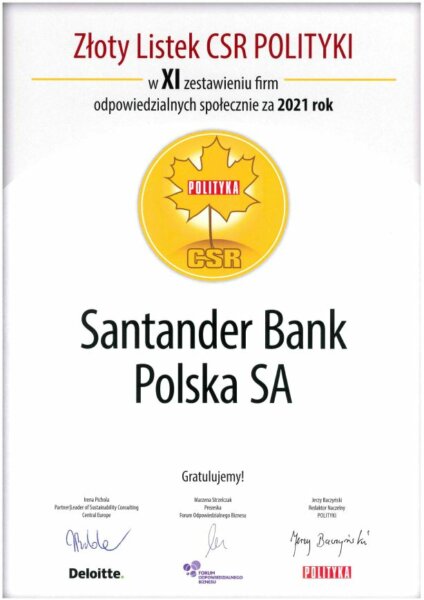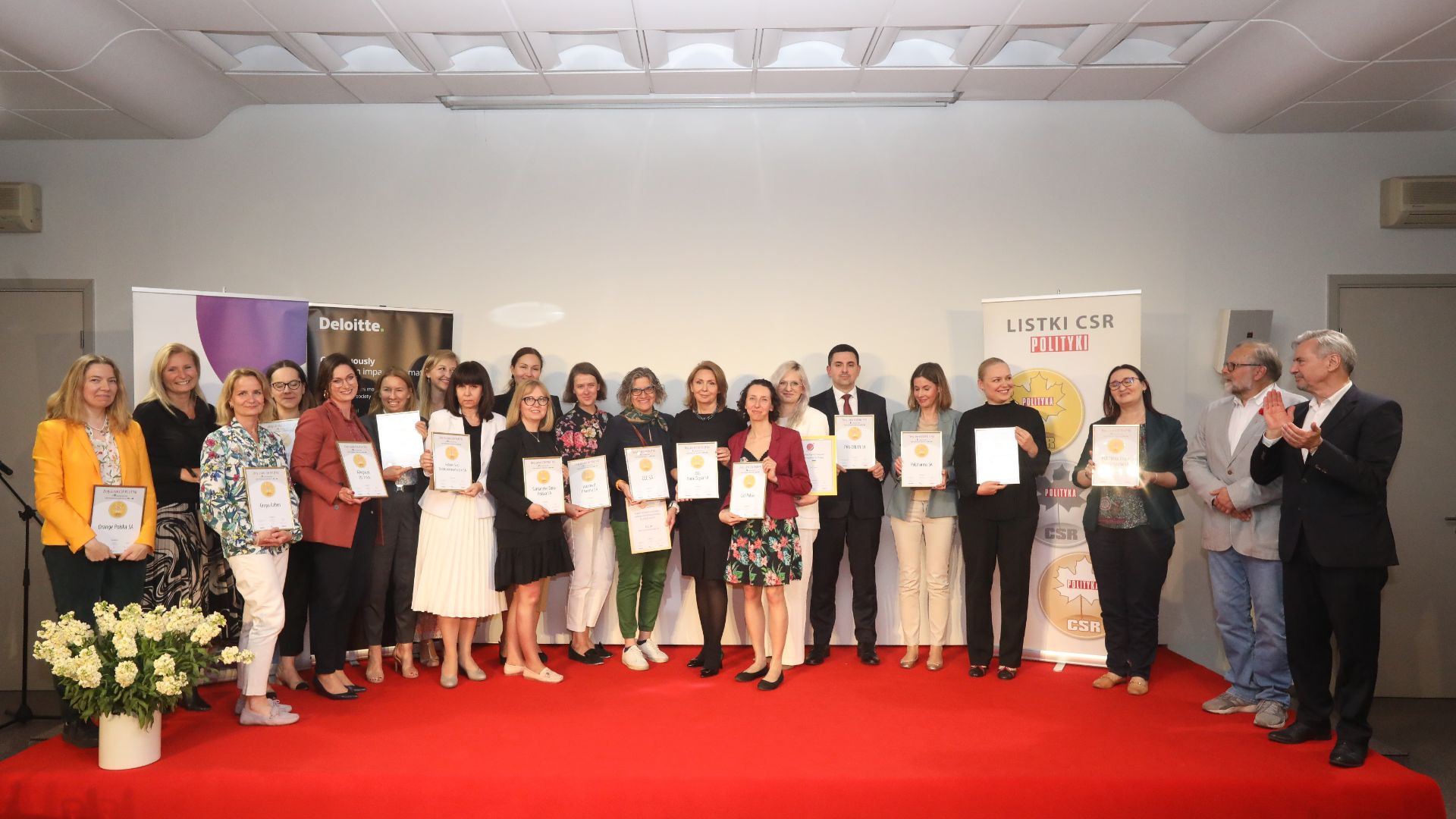Santander Bank Polska Once Again Awarded the Golden CSR Leaf of Polityka
For the 11th time the weekly magazine POLITYKA, the advisory firm Deloitte and the Responsible Business Forum have honoured Polish leaders in sustainable development and ESG as part of the CSR Leaves Awards. Companies participating in the ranking for years are now better prepared and adapted to regulatory requirements related to ESG management. Santander Bank Polska has received the Golden Leaf award for the second time in a row.
As every year, the organisers analysed the approach of companies from the perspective of environmental, social and corporate governance aspects.
POLITYKA’s CSR Golden Leaf went to 21 companies, the Silver Leaf to 27, and the White Leaf to 35. The ratings were awarded on the basis of an analysis based on a questionnaire completed by the companies, developed in accordance with the guidelines of the ISO 26000 standard.

The Golden Leaves were awarded to those companies for which sustainable development is a key element of strategic business actions and relations with stakeholders. These companies build their operations on best local and global management practices and apply international standards. An important element of ESG management is a comprehensive ethics management system. Another important aspect is the periodic reporting of activities in non-financial disclosures prepared in accordance with international standards and independently verified.
The Silver Leaves were awarded to companies that declare considering most of the key sustainability solutions in their daily operations. They implement the highest quality standards and disclose information related to their activities.
White Leaves, on the other hand, were awarded to entities which have implemented important governance categories, but still work on improving their actions aimed at effective management of their organisations’ environmental impact.
Among the awarded companies, about 90 per cent have an up-to-date, implemented and adequate for operations in Poland document defining such aspects as directions, priorities, goals, measures and tasks related to managing the company in a socially responsible (CSR) and sustainable (ESG) way. Most of them have a defined governance structure in this area, and responsibility has been placed at the level of a board member. This shows how important ESG has become in recent years. A comprehensively managed ethics system within the organisation is also becoming of key importance. As many as 94 per cent of companies have such a formalised approach. Around 91 per cent have a whistleblowing system that allows all employees to report suspected, observed or experienced issues anonymously and by name, with a clear path for the company to follow in order to resolve the reported issues.
Companies are also making progress in the area of employee relations. Already 87 per cent of companies have a formalised system for planning periodic objectives, both business and developmental, and their assessment for all employees, regardless of the type of contract concluded and position. The same number of companies periodically conduct satisfaction surveys. Companies are increasingly imposing sustainability expectations on their suppliers and business partners. 75% of companies have implemented a supplier verification process and provisions in contracts obliging them to comply with the principles laid down in the Code of Ethics or another document regulating non-financial aspects of cooperation. Moreover, 87 per cent of the companies analysed periodically disclose information on their activities in Poland. Still, only 30 per cent subject their report to independent external verification carried out in accordance with the ISAE 3000 methodology, even though this practice is to become mandatory within two years, starting from 2024.

More information can be found at:
https://www.polityka.pl/tygodnikpolityka/rynek/2167503,1,dzialania-na-rzecz-klimatu.read